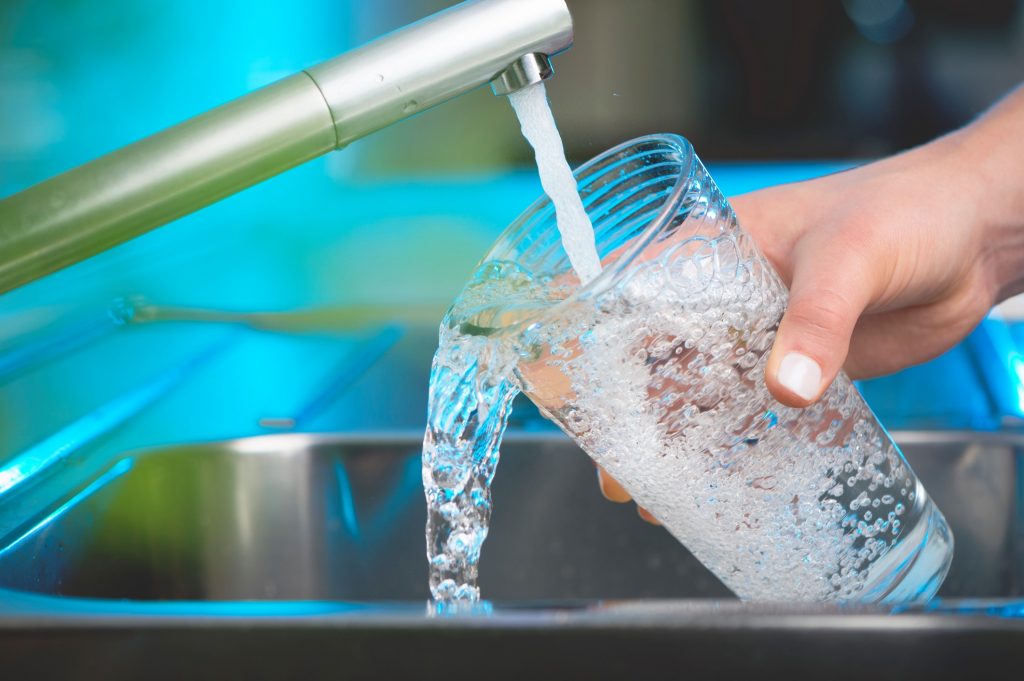It’s easy to take clean drinking water for granted. After all, you turn on the tap and out comes crystal clear water, ready to consume, cook with, water your plants, and more. But what happens when faucet water starts looking a little tainted and emits an unpleasant odor or two?
First, you want to know what’s going on. Next, you want to know if the safety of your water supply has been contaminated and, if so, to what extent.
To help get you headed down that path of discovery, here are several common water supply problems and what they mean.

Hard Water – Excess magnesium and calcium in your water supply can lead to what’s called “hard water” conditions. Left untreated, hard water can cause lime scale to build up inside pipes and cause permanent damage. It also makes it harder to clean yourself, clothes, and dishes. A surefire remedy is a home water softener where water flows through a sodium solution to remove impurities that are causing all the problems.
Iron and Manganese – These minerals often give water a rusty or cloudy appearance, a metallic taste, and can cause stains on cookware, laundry, and plumbing fixtures. A water softener can remove up to 5 PPM (parts per million) of ferrous iron; for more serious problems, oxidizing and colloidal iron filters can better provide the relief you seek.
Hydrogen Sulfide – This colorless gas causes water to smell like sulfur or rotten eggs and is extremely corrosive to metal pipes. A multi-stage filtration system is required to remove hydrogen sulfide.
Foul Odor and Bad Taste – Fishy, musty, or moldy tastes or smells can be caused by organic matter found in surface water supplies. In more serious cases, foul odors and tastes can stem from a sewer or septic leak. If you suspect a leak, call a professional right away. In the absence of a leak, you can solve the problem with an activated carbon filter.
Sediment – Sediment can include clay, sand, scale, dirt, rust, and organic materials that are suspended in water, causing it to appear cloudy or opaque. You can purchase sediment filters at most home improvement stores.
Lead – In older homes, copper pipes were once joined and sealed by lead solder. Over time, the lead would dissolve and turn your drinking water into a harmful brew. To make matters worse, lead is colorless, tasteless, and odorless, making it extremely difficult to detect. If you live in an older home, have your water tested by a water treatment specialist.
Here at Eagle Service Company, our water quality specialists can assess your city or well water supply to see if action is needed or if water quality is fine as is. Either way, it’s better to know what you’re drinking than to guess – don’t you agree? Contact us today for a free consultation.


